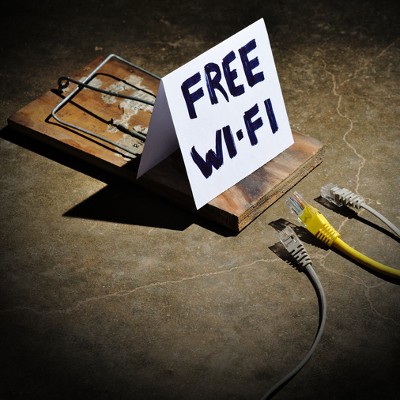Wireless Internet signals, referred to most commonly as Wi-Fi, are commonplace in every office. Even organizations that don’t often need access to the Internet, like restaurants and coffee shops, have wireless connections available for customers to use. However, just because you can connect to free Wi-Fi, doesn’t necessarily mean that you should.
One of the big problems with free Wi-Fi is that people who use public connections are fully aware of just how dangerous it is; yet, they still want to use it. The Identity Theft Resource Center claims that 78.5 percent of users who connect to free Wi-Fi understand that there are major risks involved, and yet only 26.7 percent use a VPN to keep themselves safe. Thus, free Wi-Fi should be approached with caution. Here are just a few reasons why you need to be careful when accessing public Wi-Fi.
Anyone Can Access It
If the Wi-Fi isn’t protected by a passcode, the network is vulnerable to hacking attacks and other threats. Plus, if the router isn’t configured properly, the passcode doesn’t offer much help. The fact that anyone can access it at their leisure means that there’s virtually nothing stopping hackers from connecting to the router and spying on other users.
It’s worth mentioning that, although we use the term ‘hacker,’ even a mischievous child with a bit of curiosity and the proper know-how could access your files via public Wi-Fi if the connection isn’t secure.
Free Wi-Fi is Highly Used
It’s natural that a free Internet connection will attract attention from people. That said, the more people who connect to a Wi-Fi network, the slower the connection, and the more likely it is to house a hacker. Hackers understand that free Wi-Fi draws plenty of victims, so they’ll use the convenience to find new targets.
Data Isn’t Encrypted
Encryption adds an extra layer of protection to any data that’s sent to and received across an Internet connection. When routers have encryption, hackers have a more difficult time stealing data. Therefore, you should only connect to routers that have encryption, and it’s unlikely that your run-of-the-mill router at your local restaurant has it.
What You Can Do
You may not be able to control who secures their public Wi-Fi routers, but you can take steps to protect yourself if you’re ever in the position where you feel you must use it. Here are three best practices for keeping your devices safe while using a public Wi-Fi network:
- Only connect to networks that require security codes.
- Set your phones and devices so that they don’t automatically connect to any new Wi-Fi network.
- Use a Virtual Private Network (VPN).
To learn more about how you can keep your data safe from prying eyes, reach out to Info Advantage at (585) 254-8710.






